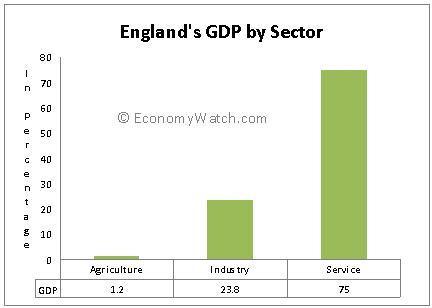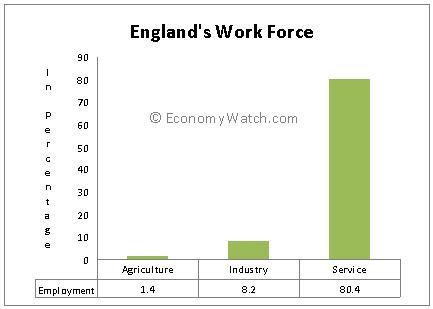England Economic Structure
Please note that we are not authorised to provide any investment advice. The content on this page is for information purposes only.
England is one of the most industrialized nations in the world. Lately, the focus has shifted towards services and the sector’s contribution to the economy has been impressive. In 2009, the services sector alone contributed almost 75% of the total GDP. The only industry that seems on the rise is the construction industry, which has been propelled by the latest impetus of infrastructure demands.[br]
England is one of the most industrialized nations in the world. Lately, the focus has shifted towards services and the sector’s contribution to the economy has been impressive. In 2009, the services sector alone contributed almost 75% of the total GDP. The only industry that seems on the rise is the construction industry, which has been propelled by the latest impetus of infrastructure demands.[br]
The industry and agriculture sectors stuck to their regular contributions. The following graph shows how the different sectors contribute to the economy (in percentage):
England Economic Structure
England’s economy is the largest amongst all the constituents of the UK. Agriculture is well developed and mechanized. Almost 60% of the country’s needs are met by agricultural goods, while tea and wool are mainly imported.[br]
In terms of employment opportunities, the financial vertical remains the biggest draw and absorber. The services sector creates the maximum employment and provides 80.4% of the total employment. The following graph shows the contribution of all the sectors in terms of employment (in percentage):
About 8% of the population remains unemployed (as of 2009). This figure saw a slight increase due to the recession, when the financial sector was worst hit and correspondingly significant job losses occurred. The figure for 2008 was better at 5.642%.
England’s economic structure also depends on public debt. According to the 2009 statistics, almost 68.5% of the GDP was public debt. Public debt increased from the 2008 figure of 51.8%.
In the modern times, tourism has become one of the most reliant industries. Millions of people from around the world travel to the UK for its rich heritage. This has catapulted a sector which is vulnerable to the world economic performance, yet provides significant employment as well as foreign exchange.






